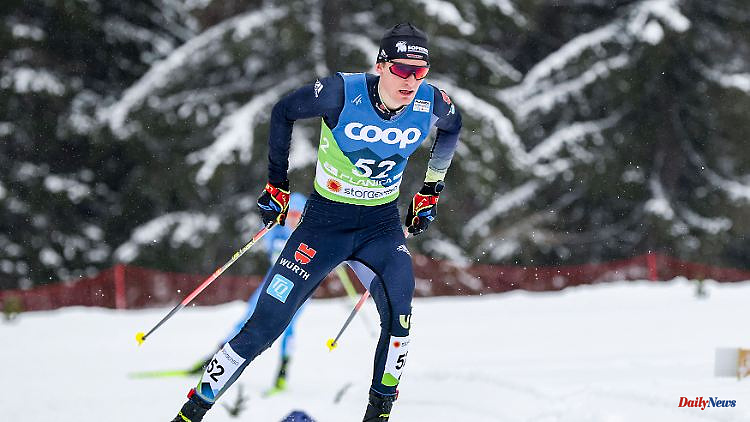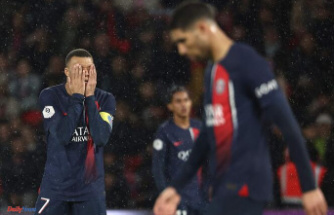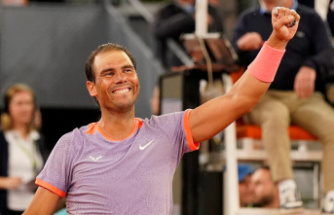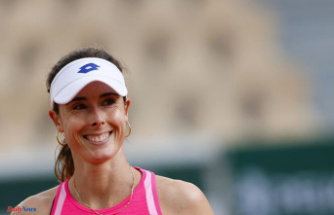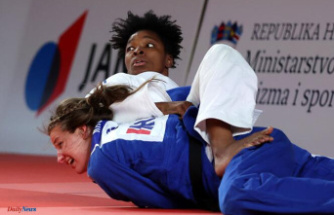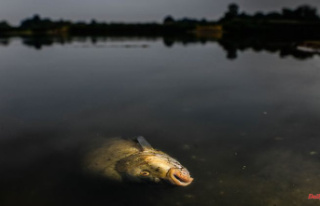Second season, second medal: The German cross-country skiers do the same as the women and sensationally storm to bronze. Gold goes to the superior team from Norway for the twelfth time in a row. Friedrich Moch and Jonas Doble secure the medal with two top performances.
When Friedrich Moch brought the medal "home" to the finish in Planica, there was no stopping the rest of the German squadron. Albert Kuchler, Janosch Brugger and Jonas Dobler ran after their final runner with raised arms and fell into his arms with cheers. One day after the women's silver coup, the men provided the next cross-country skiing highlight in Planica - and sensationally won bronze.
"It was a small cross-country miracle," said Dobler after the exciting race. Youngster Moch had only secured the twelfth medal in the title fights in Slovenia for the German Ski Association (DSV) in the finish sprint against the Frenchman Jules Lapierre, the German athletes surpassed the previous record from 2017. "I knew that I could be faster in the sprint as Lapierre, and that's what I did well," said Moch.
A good twelve months after "Do you have the pan hot" at the Olympics, ARD commentator Jens-Jörg Rieck coined a saying again: "Hurrah the chamois!" He shouted at the finish line. National coach Peter Schlickenrieder commented: "That's absolutely true." The fact that this comment was not shown live on ARD this time, but only in the live stream, also shows how hopeless the Germans were considered before the season. "I have no words at all. Unbelievable. Now we are no longer just the little cross-country skiers in Germany, now we also have a fucking medal," said Brugger.
The German men also ended a dry spell that lasted twelve years: for the first time since the World Championships in Oslo in 2011, they won a World Championships medal, when there was also bronze in the relay. Norway meanwhile won their twelfth straight relay gold at a World Cup. It was also the third gold in Slovenia for both top star Johannes Hösflot Kläbo and Simen Hegstad Krüger.
The race started well for the DSV team: In his first relay race at a World Championships, starting runner Kuchler was consistently part of the main field and handed over to Brugger, who fell back from the group and handed over to Dobler, 18 seconds behind in third place. "It wasn't the best day for me but the other guys were fantastic," said Brugger. When he was struggling as a second man, former national coach Jochen Behle stated: "Now the hope of the German team is flying out of the window." He was wrong.
Because Dobler showed a strong performance, closed the gap to the chasing group and sent Moch from position six to the decisive ten kilometers. The youngster, who had previously impressed in Planica with two top 10 finishes in the skiathlon and over 15 km, confirmed his outstanding form in the finish sprint - and caused his relay colleagues to kneel in front of their last runner.
"Super, super cool. I'm happy for the whole coaching team. They did a great job. Jones did a great job. Fri stayed cool. That's a great story," praised Schlickenrieder. The 53-year-old pulled a small rocket out of his pocket, which the team assistant had pulled out of a surprise egg that morning. "I have the rocket that started here. She gave it to me. That was a sign, the day started well," said the completely enthusiastic ex-athlete. "It's a bit like a Hollywood movie"
Unlike the bronze race, the gold "battle" wasn't exactly exciting. The Norwegians turned their circles alone from the start. Starting runner Hans Christer Holund gave his team a lead of 25 seconds at the first change after 10 kilometers. In the end, the Scandinavians were 46.9 seconds ahead of the second-placed Finns, who also ran a lonely race. Hans Christer Holund, Paal Golberg, Simen Hegstad Krüger and Kläbo also continued a splendid series. At the past 17 world championships since 1991, the foursome from Norway has won gold 16 times, only in 1999 did Austria win.

